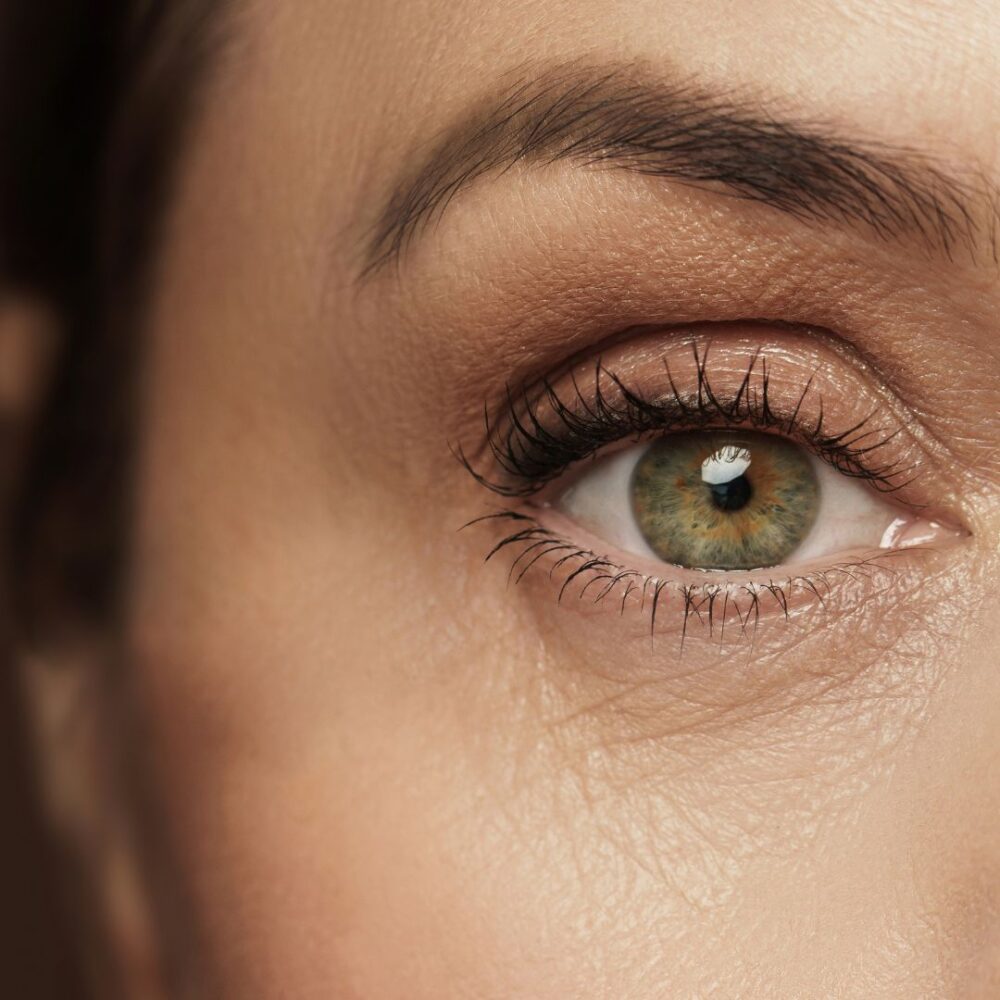
You know how people always say how stress ages people fast? Well, I, myself have been wondering how true that is. I bet you might be thinking about the same thing as well.
Will too much stress really show up on your face?Short answer, yes.
More stress often leads to poor sleep and diet choices, and when you combine all three, what do you get? Baggy eyes, wrinkles, acne, dry skin, collagen changes and much more.
In this blog, let's dive into how stress is connected to early aging. Discover how high levels of stress hormones and inflammation can cause those fine lines and wrinkles and the importance of healthy habits and natural remedies to combat them.
Learn more about the secrets of stress relief in preventing stress-related aging to keep your skin looking radiant and youthful.
Article Highlights:
- When you always feel stressed, it can negatively impact your skin health, causing premature aging, acne breakouts, and even dull complexion.
- Stress hormones, inflammation, and oxidative stress are the three key factors linking chronic stress to skin issues.
- Take note, there are steps you can do to relieve stress like adopting healthy habits, practicing stress management strategies, and using natural remedies and it can also prevent early aging.
- Plus, find out about the newest natural compounds, such CBDA, that can help you cope during those stressful situations and ultimately prevent aging.
How Stress affects Our Skin and Appearance
Stress is not all bad, it is actually your body's natural way of dealing with demands or threats that come your way.
You need to think of it like this: when you're always in some stressful situations, your nervous system releases stress hormones like adrenaline and cortisol. These hormones help you gear up for action so you can face whatever is up ahead.
But, as you might have guessed, too much stress hormones and chronic stress can take a toll on your overall well-being, and that includes your skin.
You might notice that when you're stressed, your face can show it in different ways.
Stress leads to darker and puffier eyes
We can all see the baggy eyes after a long night out. It usually comes with puffy eyes and a fatigued look.
You may have found that these do not go away over time, and this could be due to chronic stress. Over time, the elevated cortisol levels from chronic stress can lead to excessive water retention, which is why you get baggy eyes.
If your noticing the darker, puffier eyes, it could be from stress leading to poor sleep. In combination, they lead to high blood pressure and inflammation, which can compromise capillaries around the eyes and skin.
Stress may cause wrinkles to appear
Wrinkles are a bit multifactoral, arising from different sources, including stress. As we age, we lose elasticity as collagen and natural oil production decreases, and critical skin fat gets lost:- UV sunlight: excess sunlight can cause oxidative stress (more free radicals), and lead to inflammation which affects collagen levels.
- Smoking: smoking increases systemic inflammation which inevitably affects your skin cells. It can also directly cause increased oxidative stress from the outside as well. In combination, it prematurely ages the skin elasticity.
- Stress: long term chronic stress induces system inflammation which can affect the biological mechanisms behind wrinkle formation.
Stress can lead to drier skin
Many studies have found that excessive stress leads to dry skin. This appears to be due to increased levels of inflammation from excessive stress hormones.
There are also environmental conditions that can cause dry skin, such as sun, low humidity air which can be found in very dry areas and especially cold areas. This is particular for indoor areas which are kept very cold since A/C machines remove moisture from the air.
Stress may cause lower collagen levels
Collagen is a critical protein that is produced by cells in order to maintain their extracellular structure. This is critical to wound healing, but also helps maintain the integrity and youthfulness of your organs, including the skin.
Chronic stress may affect collagen levels through increased levels of epinephrine. This stress related compound was found to affect the skin cells and reduce their production of collagen.
Stress and facial acne
The association between stress and acne is well known, and has been widely reported in the medical community.Chronic stress can amplify acne conditions by increasing the production of sebum, which can clog facial pores, leading to bacterial and inflammatory complications. These affects of stress are largely thought to be due to increased production of stress hormones like cortisol which can have significant body wide affects on the skin, especially if it is chronically elevated.
Biology: How Stress Shows Up on Our Face
Now let's take a closer look at how stress can affect your faces.
Cortisol: The Stress Hormone and Collagen Breakdown
As mentioned, sneaky stress hormones can cause collagen to break down. Collagen is the main structural protein in your skin, this means when you lack collagen your skin is more prone to early aging.
It appears now that cortisol can directly affect the skin fibroblasts from producing collagen. This direct mechanism looks to be independent of the pro-inflammatory effects of cortisol.
Inflammation and Oxidative Stress: Double Trouble
Extreme stress can also trigger inflammation and oxidative stress in your bodies, both of which can contribute to aging. Inflammation can damage your skin cells through oxidative stress (excess free radicals) which can harm your skin's structure and appearance.Additionally, chronic elevation of inflammatory cytokines can directly signal to your skin cells to change their normally healthy biology. When skin cells are exposed to inflammation for long periods of time, their collagen and oil production typically gets affected, leading to many of the signs associated with aging.
As you can see, the common element of stress leading to heightened inflammation is critical to changing the underlying biology that leads to looking older.
Discovering Natural Ways to Fight Stress-Related Aging
I know you're wondering, what are the best ways to deal with stress to reduce inflammation?
Here are some practical ways you can do to fight early aging caused by stress.
Lifestyle Changes for Less Stress and Healthier Skin
Making some changes in your daily routine can really help in reducing stress and keep your skin healthy. Here are a few ideas:
Catch those Z's: Getting enough sleep is super important. Poor sleep is strongly associated with inflammation and increased stress levels.
Sleep hygiene: Creating a sleep-friendly environment can make a big difference.
- Dont watch TV before bed since the blue light from screens can inhibit natural production of melatonin.
- Cooler rooms are well documented to improve sleep. You can also try a bed or cover that circulated cold water while you sleep to keep the mattress cold.
- Caffeine is probably one of the main culprits of poor sleep. Because it has a 5 hour half life, drinking caffeine after noon can drastically compromise your sleep performance.
Avoid environmental toxins: Reducing exposure to harmful substances can help protect our skin. This would include smoking and alcohol consumption which increases systemic inflammation.
Exercise: Incorporating physical activities into our daily routines can work wonders. A good exercise routine is well known to reduce inflammation and improve stress relief.
Eating and Drinking Our Way to Better Skin
What you eat and drink plays a big part in fighting aging as symptoms of stress.
A healthy diet full of nutrient-dense foods, rich in antioxidants, vitamins, and minerals, can help protect your skin from damage and keep it looking youthful.
And don't forget to drink plenty of water to maintain our skin's elasticity and suppleness.
Stress-Busting Techniques to Try
Managing stress that can help reduce the impact of stress on your skin and body, such as:Meditation: Taking some time to meditate regularly can help calm your mind and reduce stress.
Deep breathing: Practicing deep breathing exercises can help lower stress levels by activating our body's relaxation response.
Yoga: Combining physical movement with mindfulness, yoga is a fantastic way to relieve stress.
Natural Supplements for Stress
If you're like me, and wondering how you can improve upon lifestyle changes to prevent premature aging, they're a couple of great supplements to help.
You will want your supplements to do two things: help get you stress free and decrease inflammation.
Cannabinoid Revolution: CBDA for stress
So have you heard of CBDA, or cannabidiolic acid, that’s making a wave in the wellness industry? It's this amazing cannabinoid that is considered as a non-psychoactive compound found in raw cannabis plants and is actually the precursor to CBD (cannabidiol).
Lately, it's been getting more and more attention for its anti-stress effects.
CBDA is the most abundant cannabinoid in the hemp flower, and has over 500% better absorption than CBD.
The CBDA anti-stress properties stem from two major functions:
- Endocannabinoid system: this system helps regulate mood, and the cannabinoid receptors are direct targets of CBDA.
- Serotonin system: the serotonin receptor 5HT1A is directly activated by CBDA, and known to help regulate mood. Specifically, these serotonin receptors are targets of the SSRI (selective serotonin reuptake inhibitors) class of drugs used to treat depression.
Some recent studies have shown that CBDA might have some pretty awesome benefits for your general health even for the skin, like anti-inflammatory and antioxidant properties.
New studies show that CBDA can directly inhibit a critical pro-inflammatory enzyme, COX-2. This enzyme is the classical target for well known anti-inflammatory drugs like ibuprofen and aspirin.
This means that CBDA could be a promising natural remedy that can help various skin issues and keep your skin in tip-top shape.
Magnesium for healthy body
Many people do not get the optimal amount of magnesium in their diet due to the poor soil quality that leads to micronutrient deficiency in our foods.
Optimal magnesium supplementation has been found to be associated with improved mood and better inflammation.
We recommend magnesium citrate or magnesium glycinate for their superior absorption properties.
Ashwagandha for stress
This herb is often used for helping with stress, and can be found in many markets online. However, it can be difficult to find high quality sources since testing purity is difficult. We recommend brands using the KSM-66 source.
Conclusion
So, to sum it all up, stress can undoubtedly affect your skin, causing premature aging and other skin problems. That’s why it is very important for you to really understand the connection between stress and skin aging. This way you can find strategies to minimize its effects on your overall well-being.
By living a healthy lifestyle, practicing stress management techniques, and trying out natural solutions like CBDA, you can fight stress-related aging and keep your skin looking youthful and radiant.
Just remember, taking care of our skin goes hand in hand with your mental and emotional well-being. So, make self-care a priority, manage stress effectively, and unlock the secrets to healthy, glowing skin.



